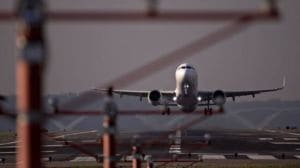Russia, China not in favour of action against Bashir
Russia and China are seeking a delay in any action against Sudanese President Omar Hassan al-Bashir...

Russia and China are seeking a delay in any action against Sudanese President Omar Hassan al-Bashir on charges of genocide, warning that it could have an adverse impact on the peace process in the region.
The International Criminal Court prosecutor had sought arrest warrants against Bashir charging him with masterminding the Darfur genocide, war crimes and committing crimes against humanity.
The United Nations urged hundreds of its staff to stay at home on Tuesday as thousands of Sudanese prepared to protest against war crimes charges levelled against their president by an international court. Protests so far have been staged by pro-government bodies but even Sudanese who traditionally oppose Bashir have backed him against the Hague-based ICC. Demonstrators hung pictures of Bashir on the walls of the UN headquarters in Khartoum and the British embassy.
UN security officials told non-essential staff to stay at home on Tuesday ahead of Tuesday’s expected protests. Many aid agencies also said they had pulled staff from rural areas back to towns in Darfur.
The joint UN-African Union peacekeeping mission, or UNAMID, said it would also begin relocating some non-essential staff, although core operations would continue. UN officials say the peacekeepers are most vulnerable to any action taken by the government or its supported militias and point to the last week’s clash in which seven peacekeepers were killed.
Though the culprits have not been definitely identified, some diplomats do not rule out the possibility of the government complicity at time when it knew the request for Bashir’s arrest is imminent.
The pre-trial court, which is examining the evidence against Bashir, is expected to give its decision in two to three months. So far, it has signed all the 11 warrants sought by the prosecutor. The human rights groups believe that Bashir might be more amenable to a peace deal in Darfur as the Court evaluated the evidence to avoid the issuance of arrest warrants.
The UN Security Council had asked ICC to investigate the crimes in Darfur in 2005 and diplomats said the western governments apparently provided intelligence including satellite surveillance to enable Prosecutor Luis Moreno-Ocampo to build the case.
The Council can call for delay in investigation or prosecution for at least one year if it so decides to give chance to peace talks to succeed.
Diplomats from China and Russia said they were opposed to any immediate action against Bashir.
The Human Rights groups have welcomed the ICC’s decision but diplomats at the United Nations are worried. The reaction of human rights group is based on the calculation that Bashir would try to pursue the peace talks more vigorously to avoid action but several diplomats are not so sure. The situation in Sudan is quite different, they argue, and the government is fairly well entrenched.
•What is the Darfur conflict in which President Bashir of Sudan has been accused of genocide and war crimes?
Darfur is a region in western Sudan. For over five years now, rebels there have been fighting against Sudanese government troops and a government-backed Arab militia called the Janjaweed. In the five years, the UN estimates at least 400,000 people have been killed and two million displaced.
•What is the conflict about?
The immediate cause is often traced to climate change that brought about the desertification of the region. Consequently, Arab nomadic tribes travelled south in search of water and grazing lands, encroaching on the lands of the Fur, Zagawa and Masalit tribes that are mainly African and agriculturists. It soon took on an ethnic dimension of an African-Arab conflict, with the nomadic Arab tribes getting the support of the Sudanese government in their struggle against the African tribes. Rebellion broke out in February 2003 when two Darfur groups, the Justice and Equality Movement (Zagawa-backed)and the Sudan Liberation Movement (mainly comprising Fur and Masalit tribals), accused the government of opressing non-Arabs.
•How did the government react?
The Sudanese government used its army to suppress the rebellion. It also armed the Janjaweed and organised joint operations against the Fur, Masalit and Zagawa tribes. The government has also been accused of suppressing information and killing or jailing witnesses. Sudan has been reluctant to allow UN-mandated foreign peackeeping troops on its soil, though it has allowed a joint UN-African Union Mission to help protect civilians.
Photos


- 01
- 02
- 03
- 04
- 05





























